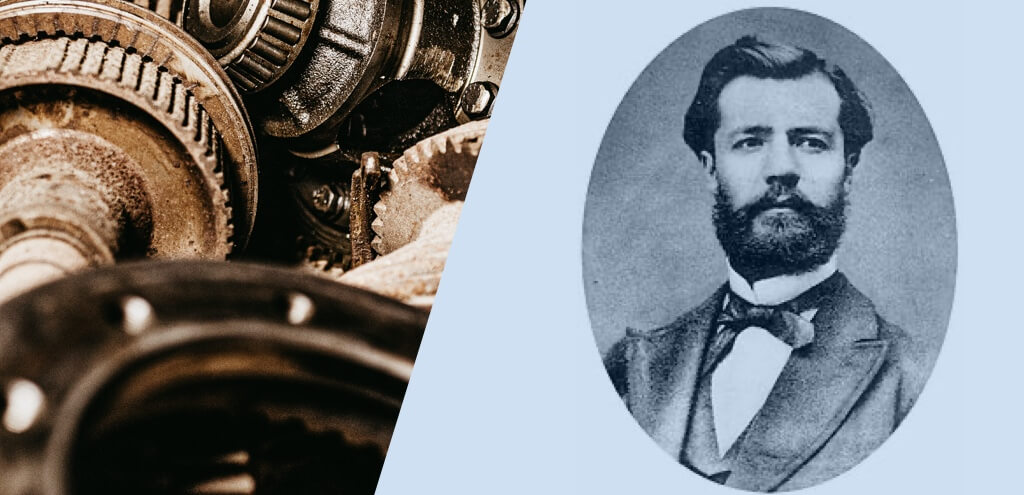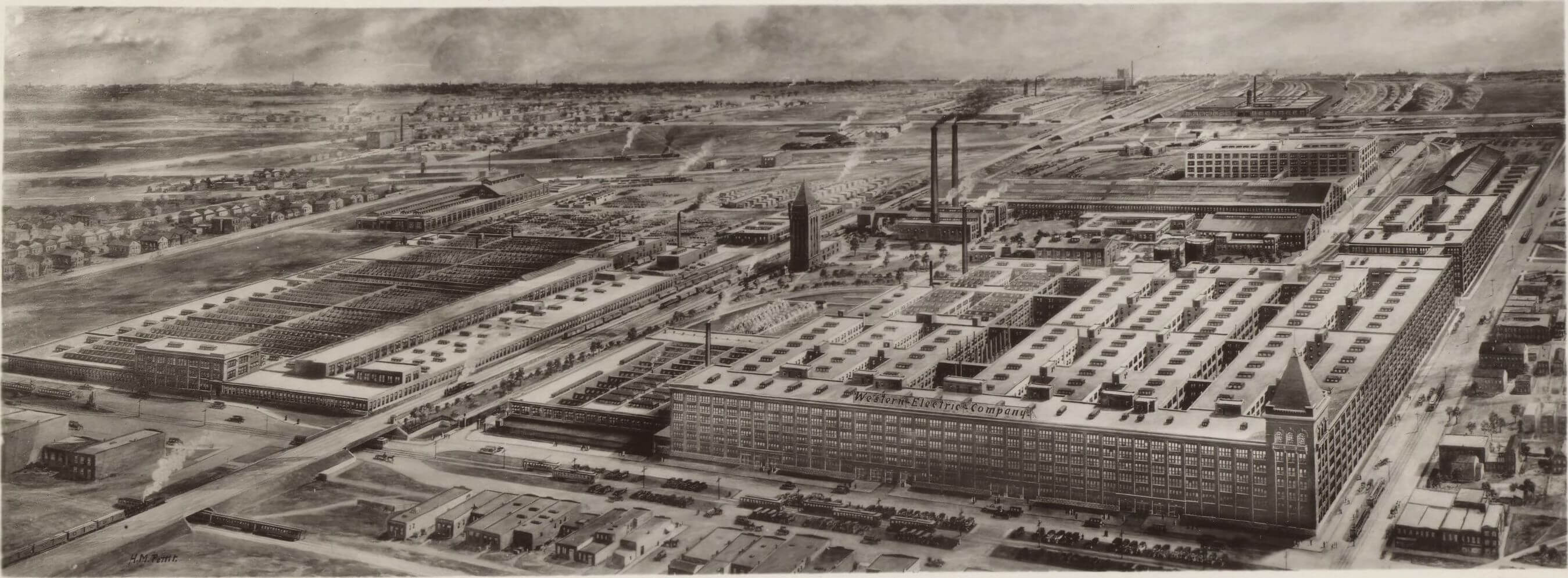What are Henri Fayol’s five functions of management?
The five functions of management as defined by Henri Fayol are: Planning, Organizing, Command, Coordination, and Control. These five functions comprise “management”, one of the six industrial activities described in Henri Fayol management theory.
Henri Fayol is widely regarded as the father of modern management. His management theories, mostly developed and published in the early 1900s, were a major influence on the development of industrial management practice throughout the twentieth century.1
His ideas were developed independently of other popular management theories of the time, such as Human Relations or Elton Mayo’s scientific management theories — although they drew similar conclusions about the importance of worker wellbeing to productivity.
Fayol’s school of thought had a stronger emphasis on the role of management in an organization, when compared with its contemporaries in the field of organizational psychology. It’s associated with an “industrial” approach to business2, including cog-like replaceable workers and a rigid hierarchy with strong top-level command.
- A description of Henri Fayol's origin and historical context.
- An overview of key Henri Fayol management theories.
- How industrial principles developed by Fayol apply to organizations today.
Who is Henri Fayol?
Jules Henri Fayol (1841-1925) was born in Galata, Ottoman Empire, and raised in France. After graduating from mining academy L’École Nationale Supérieure des Mines, he worked as a mining engineer for Boigues Rambourg, eventually becoming Managing Director in 1888 and saving the company from bankruptcy. By 1900, under Fayol’s management, the firm became “one of the largest producers of iron and steel in France and regarded as a vital national industry.”3

He began garnering attention after publishing his theories in a 1908 paper, and his work culminated in the world-famous book, “Administration Industrielle et Générale” (“General and Industrial Management”).
As a result of this piece of work, Fayol became known for his Administrative Theory, also known as “Fayolism,” and as the father of Modern Management.
Fayol completed his most famous works during the Classical Period of management theory, alongside contemporaries like Max Weber (known for his principles of bureaucracy) and Frederick Taylor (known for his principles of Scientific Management).
What are Fayol’s management theories?
The Management Theory of Henri Fayol includes three main theories:
- The Six Industrial Activities
- The Five Functions of Management
- The 14 Principles of Management
I’ll provide the details about each of them in the sections below.
The Six Industrial Activities
To begin his book, Henri Fayol states that there are six main industrial activities. The types of activities are:
- Technical, including production, manufacturing, and adaptation;
- A high level of technical ability is important in order to produce excellent products.
- Commercial, including markets, contracts, buying, selling, and exchange;
- Being skilled in commercial aspects is important because it has a strong impact on revenue and cost savings.
- Financial, involving the search for and optimum use of capital;
- Since “many potentially prosperous enterprises die suffering from lack of money…nor is any reform or improvement possible without finances or credit,” optimal use of finances is critical to a business.
- Security, involving the protection of people and property;
- Accounting, stocktaking, the balance sheet, costs, and statistics;
- “An efficient accounting system, clear and simple, giving an accurate idea of the firm’s condition, is a powerful managerial instrument;” and
- Managerial, including planning, organizing, command, coordination, and control;
- “Management…is neither an exclusive privilege nor a particular responsibility of the head or senior members of the business; it is an activity spread, like all other activities, between head and members of the body corporate.”
While listing and distinguishing each of these categories wasn’t entirely a development in Management Theory, the separation of, focus on, and development of management as a distinct and important discipline absolutely was. Thus, this section of Fayol’s book was more concerned with demonstrating that management is unique and alluding to his groundbreaking work on The Five Functions of Management.
The Five Functions of Management
Within Managerial Activities, Henri Fayol specifies five primary functions (or elements). These functions are:
- Planning;
- Organizing;
- Command;
- Coordination; and
- Control.
Fayol says that planning, also labelled as a “plan of action,” “is one of the most difficult and…important matters of every business and brings into play all departments and all functions, especially [management].” He states that planning is comprised of four components:
- The desired result (i.e. goal);
- The action;
- The stages; and
- The methods.
In order to create a plan, a manager must consider the firm’s tangible and intangible resources, work already in progress, trends, and future events. Features of a good plan are said to include: unity, continuity, flexibility, and specificity.
Organizing involves providing everything that is necessary to a plan of action—including physical and human resources—and its activities.
Command is described as getting “the optimum return from all employees of [a manager’s] unit in the interest of the whole concern.” This includes:
- Having competent personnel;
- Knowing personnel thoroughly;
- Knowing the organization’s obligations to its personnel;
- Working with other managers to ensure unity of direction and effort amongst managers and personnel;
- Setting a good example;
- Performing regular audits of performance; and
- Staying out of the minutiae.
Coordination requires ensuring that all personnel understand their responsibilities and resources and activities across the organization work in harmony in order to achieve the desired goal.
And finally, control consists of “verifying whether everything occurs in conformity with the plan adopted, the instructions issued, and the principles established.”
Combined, Fayol’s Five Functions of Management marked a substantial development in the field of Management Theory, “is credited with the original planning-organizing-leading-controlling framework,” and remains a major management framework worldwide.
Henri Fayol's 14 Principles of Management
Henri Fayol believed that “the soundness and good working order of the body corporate depend on a certain number of conditions termed...principles, laws, [or] rules.” In turn, he produced 14 that are “flexible and capable of adaptation to every need,” but require “intelligence, experience, decision, and proportion.” Given that “without principles one is in darkness and chaos,” Fayol hoped that these principles could be relied upon and/or used for future study.
Otherwise, it’s important to note that what Fayol offers are simply “some of the principles of management which [he has] most frequently had to apply.” He states that “there is no limit to the number of principles of management” and “every rule or managerial procedure which strengthens the body corporate or facilitates its functioning has a place among the principles.”
With the above in mind, the following describes each of the 14 components of Fayol’s administrative principles approach.
1. Division of Work
Specialization helps to "produce more and better work with the same effort" by reducing "the number of objects to which attention and effort must be directed."
2. Authority
"Authority is not to be conceived of apart from responsibility, that is apart from sanction—reward or penalty—which goes with the exercise of power"; in other words, having and exercising authority comes with responsibility and consequences.
"Useful actions [of personnel] have to be encouraged and their opposite discouraged." Any sanction delivered "must take into account the action itself, the attendant circumstances, and potential repercussions" and requires "high moral character, impartiality, and firmness."
3. Discipline
"Obedience, application, energy, behavior, and [the respecting of agreements]...is absolutely essential for the smooth running of business." That being said, "the state of discipline of any group of people depends essentially on the worthiness of its leaders"; Fayol states that any problem with discipline "mostly results from the ineptitude of the leaders."
Agreements between management and personnel should "be clear and, as far as possible, afford satisfaction to both sides."
4. Unity of Command
"For any action whatsoever, an employee should receive orders from one superior only... Should it be violated, authority is undermined, discipline is in jeopardy, order disturbed, and stability threatened."
This principle is emphasized as being especially important.
5. Unity of Direction
A group of activities with the same objective should have one plan and one person in charge. This is "essential to unity of action, coordination of strength, and focusing of effort."
6. Subordination of Individual Interests
Everyone should work in the combined best interests of everyone involved rather than in their own best interests.
Managers can influence positive behavior through: "firmness and good example," "agreements as fair as is possible," and "constant supervision."
7. Remuneration
Remuneration is dependent on a number of factors, but "it should be fair and, as far as is possible, afford satisfaction both to the personnel and firm."
8. Centralization
"The question of centralization or decentralization...is a matter of finding the optimum degree for the particular [decision/task]" and the capacity and/or preferences of the manager.
9. Scalar Chain (Line of Authority)
Authority should move from the top down in order to maintain unity of command, but lateral communication is possible if superiors are aware of and support it.
The line of authority should be as short as possible.
"It is an error to depart needlessly from the line of authority, but it is an even greater one to keep to it when detriment to the business ensues."
10. Order
Materials must have "a place appointed for each thing and each thing must be in its appointed place." Places should also be "suitably arranged" and "well chosen." This is to avoid "useless handling, lost time, [and] risk of mistakes."
In addition, there should be "an appointed place for every employee" and each employee is suitable for their place. Charts or plans are recommended in order to organize materials and people.
11. Equity
Managers should "strive to instill [a] sense of equity" throughout their chain of command and use "equity and equality of treatment" when dealing with employees.
12. Stability of Tenure
"Instability of tenure is at one and the same time cause and effect of bad running." Personnel should be in a position long enough to have time to "render worthwhile service"; if not, "the work will never be properly done." But, like all other principles, it's "a question of proportion"; tenure can also be too long.
13. Initiative
"It is essential to encourage and develop [initiative]," but to also ensure "respect for authority and for discipline." "Other things being equal...a manager able to permit the exercise of initiative on the part of subordinates is infinitely superior to one who cannot do so."
14. Esprit de Corps
"Harmony, union among the personnel of a concern, is great strength in that concern" and "effort...should be made to establish it."
How do Fayol’s management theories apply to leaders today?
As mentioned earlier, since Henri Fayol’s Five Functions of Management remains a major management framework, it can still be used as it was originally written. That being said, the theory is descriptive, not prescriptive; it serves more as a scaffolding, general process, or reminder of duties rather than any sort of technique.
In any case, it includes a few gems that can be used as checklists, like the four components of planning (goal, action, stages, and methods). The same can be said about Fayol’s 14 Principles of Management.

Otherwise, on the subject of applicability, many people have argued that Fayol’s approach is cold and mechanistic. However, I’d argue the opposite, and especially so for his time. Throughout his work, one should note that he: considers multiple perspectives; recommends the empowerment of and “kindliness” and fairness towards personnel; and often prescribes flexibility in approaches.
Also, remember that he was talking about the broader subject of Management as opposed to the specific subject of Leadership; that is, I’d argue that Management tends to be less sympathetic, comparatively cold, and calculated, while Leadership is more sympathetic, warm, and considerate. Regardless, if you consider his work in its entirety and remember that it was translated from another language many years ago, I believe you’ll have a more favorable perspective.
So, altogether, Fayol’s management theories definitely still apply as-is and are excellent reminders of the duties that come with the Management function. If you haven’t read about them before, it might help to go through them again and consider things from your current position or the perspective of the subject of a case study. That way, you can get a better understanding of management as a function and the leader’s role within it.
Ongoing impact of Henri Fayol’s management theories
As a result of his contributions to Administrative Theory, Henri Fayol is still regarded as one of the most important management thinkers of all time.
Clearly, this is well deserved as his theories have stood the test of time and influenced well-regarded developments since.
Therefore, Fayolism is a great subject of study and worth keeping around as management reference material.
Further Reading
- Bright, D. S., & Cortes, A. H. (2019). Principles of management. OpenStax. https://openstax.org/details/books/principles-management
- Fayol, H. (1949). General and industrial management. Sir Isaac Pitman & Sons, Ltd. https://archive.org/details/in.ernet.dli.2015.13518/page/n5/mode/2up?q=elements
- The Open University. (2020). Discovering management.
- The Open University. (2012). Jules Henri Fayol.
- University of Minnesota. (2015). Principles of management.
- Witzel, M. (2003). Fifty key figures in management. Psychology Press.


 EOW: Business Definition and Meaning
EOW: Business Definition and Meaning